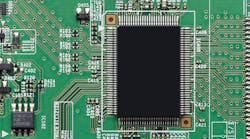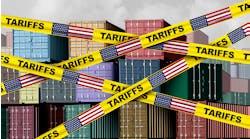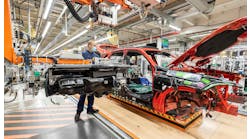The US Needs a National Manufacturing Strategy for Semiconductors
President-Elect Joe Biden is getting a lot of advice for his new administration. But he recently received some unexpected input from Bob Swan, the CEO of Intel. In an open letter to the president-elect, Swan urged Biden to pursue a national manufacturing strategy for the U.S. semiconductor industry.
Swan is right. The United States badly needs a new approach to semiconductors. In fact, the Boston Consulting Group recently estimated that the United States needs as much as $50 billion in new investment. As Swan observed, U.S. companies account for half of the world’s microchip designs, but only 12% of global chip manufacturing. And that 12% of production is sure to shrink once China, Taiwan, and other countries invest more in their chip manufacturing capacity. China in particular is investing the staggering sum of $100 billion to build a world-class chip manufacturing industry. And Nikkei recently reported that three new Chinese startups have gone on a hiring spree, wooing engineers from top U.S. firms.
So what should the U.S. do to get back in the semiconductor game?
First, America needs to invest billions of dollars to support existing semiconductor fabrication plants (“fabs”) and build new ones. That includes investment in all the important areas of chipmaking: processors, memory, analog chips, and others.
Second, Washington should incentivize the purchase of American-made chips. A bipartisan bill from Sens. John Cornyn and Mark Warner would help in this direction. However, their legislation does not go far enough. It relies too heavily on corporate tax credits, which would have little impact in the semiconductor industry. The truth is that most U.S. chip companies pay very little in taxes. For example, Nvidia, the hottest chip company in the world right now, paid just 2.6% tax on its pretax profit of $2.94 billion in the first nine months of 2020. And start-up chip companies often pay no tax at all. Many chip companies allocate their IP rights to low-tax jurisdictions. This helps them avoid paying the full U.S. corporate tax rate.
U.S. policy should instead be geared toward developing a new financial mechanism to directly compensate chipmakers for using U.S. fabs—and penalize them for using foreign fabs. This kind of financial mechanism can be phased in over three years, to allow time for adjustment.
Third, it’s time to focus on incentivizing universities to build great technical departments focused on chips and supporting technologies, especially material science. The U.S. had these resources in the early days of chip development—but we’ve lost them. Now, America’s lack of skilled professionals has become a serious handicap for building and staffing new fabs and generating cutting-edge products.
Fourth, we need to seek competition in chip fabs. It’s great that TSMC (the world’s leading chip fab company, based in Taiwan) is building a plant in Arizona. But we need more choices. We need multiple fabs in each segment of the industry. The U.S. government cannot rely on a single fab in any one product area. The Boston Consulting Group suggests that the U.S. should aim for some 19 new fabs.
The situation in the U.S. is actually much worse than Bob Swan let on in his open letter. Intel is in big trouble. A couple of weeks ago, Apple announced that all of its new laptops will run on Apple-designed processors made in Taiwan—instead of the Intel Core chips they’ve used for years. And Microsoft is reported to be looking to replace the Intel processors in its Surface line of tablets with chips that would be made in Taiwan, too.
Right now, Intel is the only U.S.-based manufacturer of processors. If it decides to outsource building of its smaller line-width chips to another manufacturer, that could very well happen in Asia. That should create a firestorm in Washington, since the loss of U.S. chipmaking would have serious economic and national security consequences.
The solution is for the U.S. to invest in a diverse, disaggregated semiconductor industry here at home. It’s time for Washington to embark on investments that will make this possible.
Jeff Ferry is chief economist at the Coalition for a Prosperous America. Follow him on Twitter at @menloferry.




